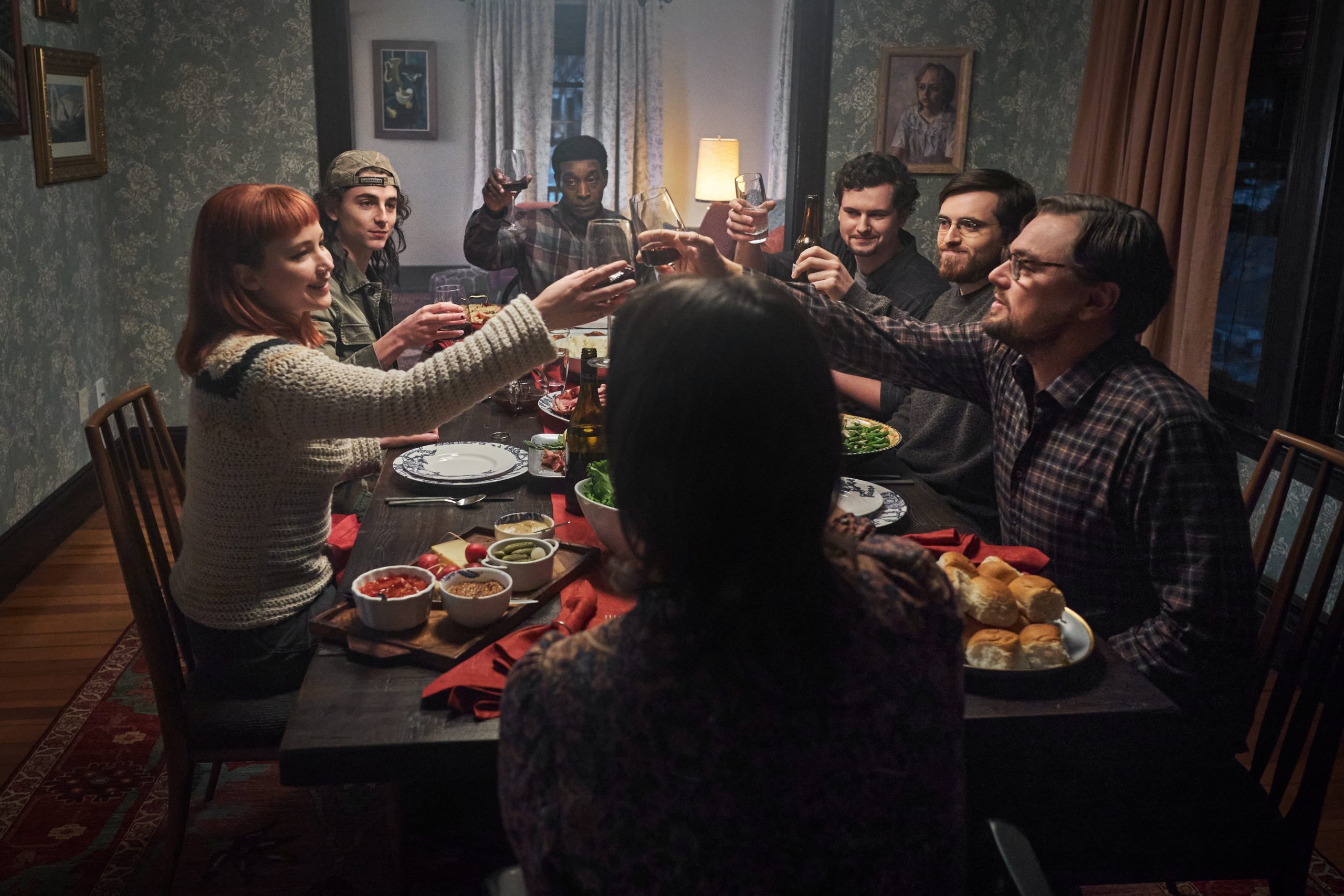When Don’t Look Up’s trailer dropped, I was dumbly excited to see it. As a climate person, you don’t get too many movies made for you. Having gotten a sneak peek, I can safely say it met expectations and then some.
The film, written and directed by Adam McKay, is ostensibly about a comet on a collision course with Earth, though the comet is a stand-in for the obvious environmental catastrophe that is climate change. It features Leonardo DiCaprio and Jennifer Lawrence as Randall Mindy and Kate Dibiasky, a scientist and PhD student respectively who spot the comet and sound the alarm about our impending doom, Meryl Streep and Jonah Hill as President Janie Orlean and son-slash-advisor Jason promptly ignoring those warnings because of a slew of scandals and midterm elections, and a motley crew of other characters, including Mark Rylance as a stand-in for Jeff Bezos-type character.
You can check the full io9 review of Don’t Look Up, which sums it up perfectly as “a film that’s funny without being slapstick, dramatic without being melodramatic, and brutally honest about the state of the world.” I want to spend some time, though, talking about the themes in Don’t Look Up that jumped out at me beyond the whole comet-as-climate-change one. Fair warning there are a few mild spoilers and plot points below.
Depicting climate change on the screen is hard. That’s why outside a few movies like The Day After Tomorrow and Geostorm, it’s slim pickings. The comet in Don’t Look Up is a perfect metaphor for the threat that is unchecked climate change. What really struck me watching the movie is that while showing the climate crisis itself is hard, showing the underlying conditions that have driven it is quite easy. Or rather, condition. Streep’s demagogic President Orleans, a media ecosystem driven by clicks and entertainment, brands pushing ads everywhere, and technology that claims to know you better than you know yourself all serve as distractions from the threat of the film’s comet.
The film subtly shows how distracted its characters are, offering uncomfortable close-ups of everything from fidgeting limbs to consumer products that hint at how they’d rather be doing anything than talking about impending doom. The phrase “don’t look up” is a slogan used to get people to avoid seeing the comet, but it’s just as easily a command to pay attention only to the distractions on the screens in front of us and accept the world as corporations and populist politicians want us to see it.
But there’s a third read on the movie’s title. At a certain point, Mindy goes from truth-sayer to distraction when he himself accepts a chance to be the public face of a hastily crafted corporate plan to mine the comet for minerals to power electronics. He eventually swings back to truth-sayer and is driving alone when he looks up and sees the comet in the sky for the first time. He steps out of his car along with everyone else on the road. It’s a powerful moment of connection even if nobody is talking to each other.

As the third act develops, it becomes clear that looking up isn’t just about seeing the comet. It’s about seeing each other for who we are and our place in the natural world. The movie hints at this throughout; in addition to flashing snippets of distractions, there are cut scenes at various points showing the natural world and people around the world engaged in everyday activities. But the film sees people coming together to convince others to look up and avert catastrophe. One of the final scenes in the film features all our good guys around a table, sharing a meal and talking about their lives, highlighting the relationships we all share.
I won’t totally spoil the ending except to say things do not end well for Earth. But while it’s easy to see that as a doomer take (indeed, our buds at the AVClub called it a “cranky, doomy” movie), I didn’t read it that way. We don’t get a Hollywood ending, but it’s not for lack of trying. And when it comes to climate change, I think it’s fair to say that anyone who has looked at the science and the state of politics for long enough isn’t exactly planning for that either. But the best-case climate scenario has one big theme: That the nearly 8 billion of us on Earth all do look up. Known as SSP1, it puts “emphasis on human well being” and “respects perceived environmental boundaries.” In other words, we’re invested in each other and preserving what we have rather than exploiting it.
In Don’t Look Up, the characters have that realisation too late to change course. But even if it’s a long shot for us, it’s still worth fighting for. I don’t know that we need a movie to tell us that — or that Don’t Look Up will reach the people most needing to change course in given how mercilessly it skewers them — but seeing it on the screen was nevertheless a revelation that you can make a good climate movie. Ultimately, it just has to be a story about us.
